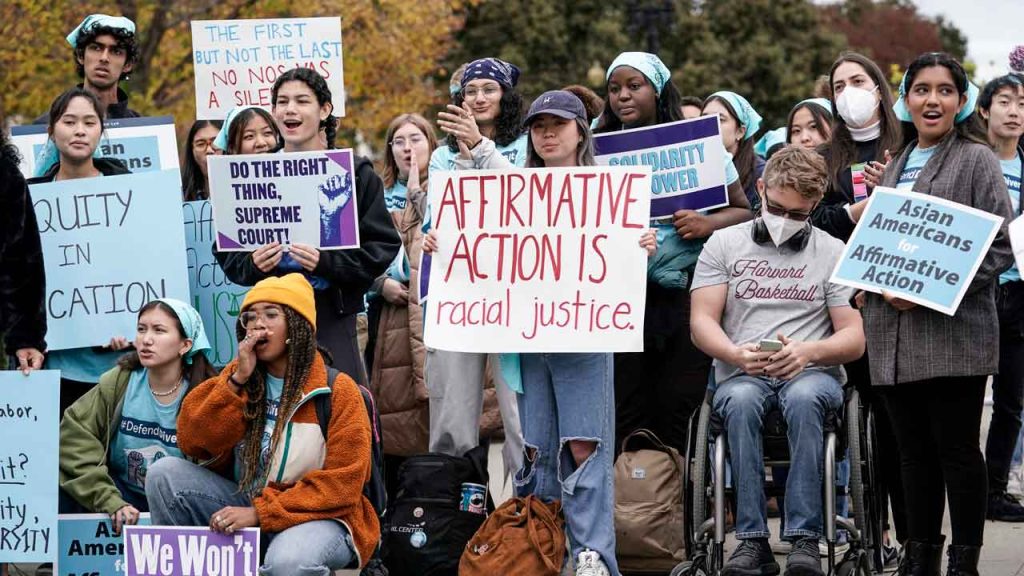The nonprofit organization Do No Harm (DNH) has released a report alleging that several medical schools are circumventing the 2023 Supreme Court ruling that prohibits the use of race as a determining factor in admissions. DNH, which advocates for race-neutral policies in healthcare education and practice, argues that these institutions are continuing to prioritize race in their admissions processes despite the Supreme Court’s decision. The report, titled “Skirting SCOTUS: How medical schools will continue to practice racially conscious admissions,” examines admissions data and MCAT scores, focusing on private institutions as public universities were already prohibited from using race in admissions. DNH expresses concern that the lack of transparent, school-level data from the Association of American Medical Colleges (AAMC) makes it difficult to ascertain the full extent of these practices.
The DNH report highlights four institutions – Quinnipiac University, University of Maryland, University of Chicago, and Duke University – where the proportion of Black and Hispanic students admitted significantly surpasses their representation in the applicant pool. This disparity, coupled with the lower GPAs and MCAT scores observed among accepted Black and Hispanic applicants compared to their peers, suggests that these schools may be continuing to employ race-based preferences in admissions. DNH argues that this constitutes a direct violation of the Supreme Court’s ruling and perpetuates discriminatory practices. The report also raises concerns about the decision by some medical schools to cease publishing detailed admissions data after the Supreme Court ruling, suggesting that this lack of transparency may be an attempt to conceal ongoing racially discriminatory practices.
DNH’s research director, Ian Kingsbury, expressed alarm at the alleged disregard for the Supreme Court’s decision, emphasizing the readily apparent discrepancies in the available data. He pointed out that these practices are often accompanied by public statements from the institutions themselves reaffirming their commitment to diversity in admissions, seemingly in defiance of the legal precedent. DNH contends that these actions indicate a broader resistance within the medical education establishment to the principle of race-neutral admissions. The organization previously reported a widespread ideological commitment to racial preferences within the healthcare field, despite the Supreme Court’s ruling.
The report further scrutinizes the role of the AAMC, alleging that the organization and several medical specialty societies exerted pressure on medical schools to maintain race-conscious admissions policies. DNH claims that these entities “rebuked” the Supreme Court decision and alluded to methods of circumventing the ruling. This alleged pressure, combined with the perceived influence of “far-left ideologues” within medical schools, contributes to DNH’s skepticism regarding the intentions of institutions that have withheld or limited the release of their admissions data. DNH argues that these institutions should not be presumed innocent of discriminatory practices.
The underlying issue, according to DNH, is a fundamental disagreement with the Supreme Court’s interpretation of fairness and equality in higher education admissions. The organization believes that the continued focus on racial demographics as a key factor in admissions, rather than individual merit, represents a form of discrimination against white and Asian applicants. They argue that this approach undermines the principle of equal opportunity and perpetuates a system where race, rather than qualifications, plays a decisive role in determining access to medical education. DNH views this as a setback in the fight for race-neutral admissions policies and calls for continued efforts to ensure compliance with the Supreme Court’s decision.
The Supreme Court’s 2023 decision in the Students for Fair Admissions case, which brought challenges against Harvard University and the University of North Carolina, stemmed from concerns over the use of race as a factor in their admissions processes. The Court ultimately ruled against the universities, declaring that race cannot be a determining factor in admissions decisions. DNH’s report underscores the ongoing debate and tension surrounding affirmative action and its implications for higher education, particularly in professional fields like medicine. The organization’s findings suggest that the fight for race-neutral admissions policies is far from over, and further scrutiny and action may be required to ensure that the Supreme Court’s ruling is fully implemented and respected. The AAMC, in response to Fox News Digital’s request for comment, reiterated its commitment to diversifying the physician workforce and improving healthcare access.

